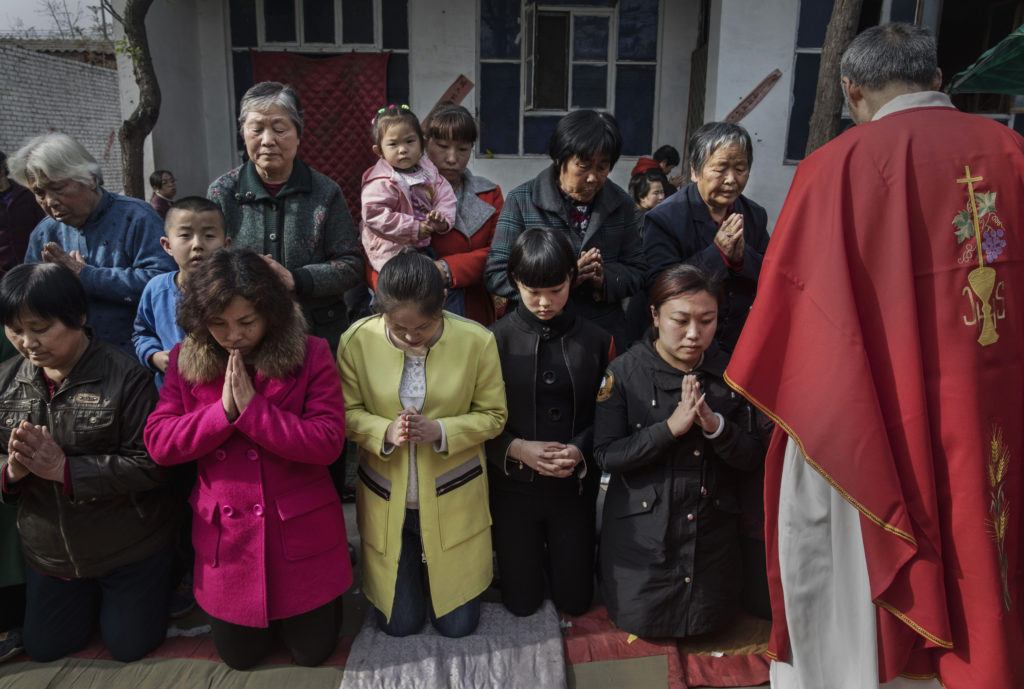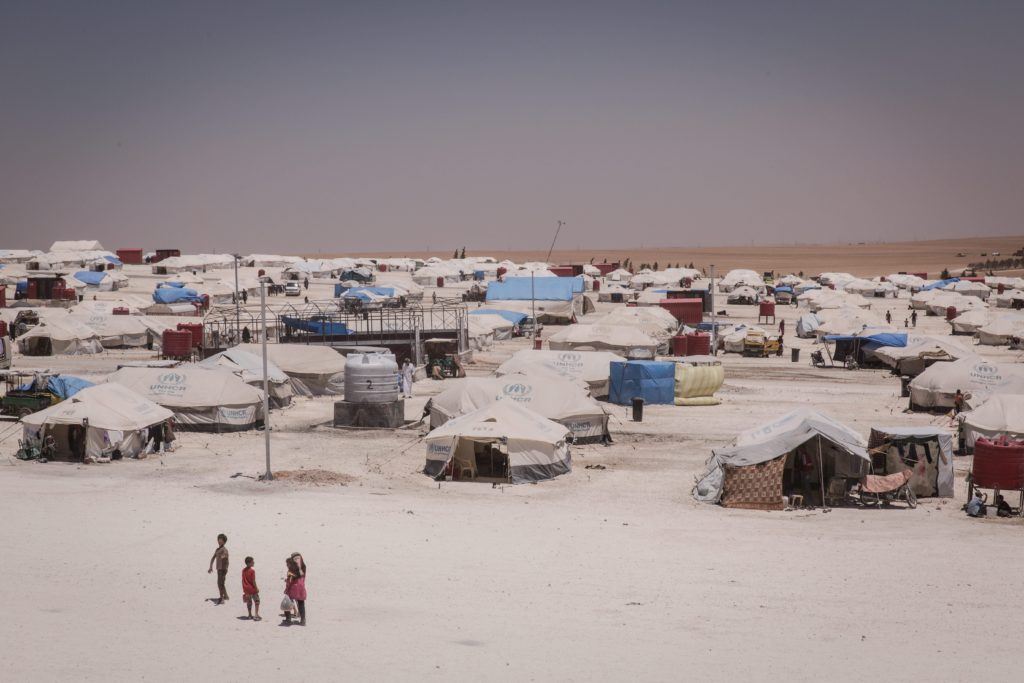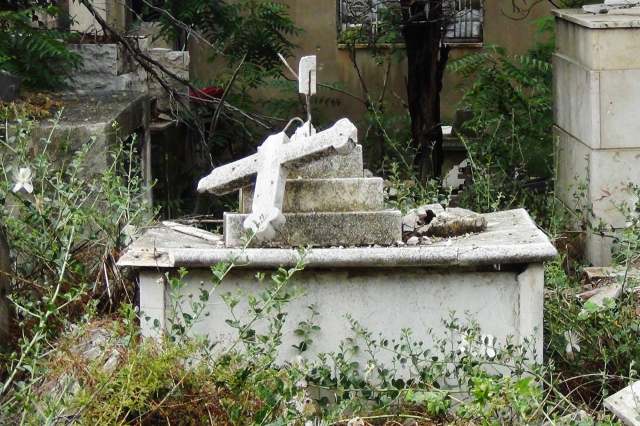Credit: Depo Photos/ABACA/PA Images

The Aid to the Church in Need report on the global persecution of Christians in the last two years – “Persecuted and Forgotten?” — was launched just over a week ago. Its findings were bleak:
The persecution of Christians is today worse than at any time in history. Not only are Christians more persecuted than any other faith group, but ever-increasing numbers are experiencing the very worst forms of persecution.
In 12 of the 13 countries reviewed in the report, from Syria to North Korea, the ACN concluded that “the situation for Christians was worse in overall terms in the period 2015-17 than in the preceding two years…in many countries the situation was already so severe it could hardly get any worse, and yet it did — the obvious exception being Saudi Arabia” where it simply can’t get any worse.
ACN is a small, Catholic organisation and its findings are largely conducted from research on the ground, country visits by its staff, and information supplied by clergy from the countries under review. So, the report can’t be comprehensive, but its findings are substantiated by other organisations. For example, the Pew Research Centre this year released a report saying that the number of countries where Christians were victims of government restrictions and social hostilities grew from 108 in 2014 to 128 the following year.
It’s nothing new to say that Christians are the most persecuted religious group in the world (the unfortunate Yazidis, victims of IS-genocide in Iraq, are different in that they are centred in one geographical area); Rupert Shortt’s 2012 book Christianophobia made that much clear. What was remarkable was the silence that met the report: There was no comment from the Foreign & Commonwealth Office, next to no coverage on social media, no ministers responded with suggestions for policy changes. The launch, in the House of Commons, was sparsely attended. (A 2014 report on religious persecution for all groups fared better; its preface was written by the Prince of Wales, who appeared by videolink.) Charles Moore, in the Spectator, suggested the reason was that “Post-Christian, multicultural societies are frightened of seeming to favour Christians, and so they ignore them.”
That seems plausible. For the government to challenge anti-Christian persecution may seem at odds with the notion of a nation of – to use the ubiquitous formula – “all faiths and none.” Despite Britain having an established church, no Foreign Secretary in recent years has explicitly identified the plight of Christians as a priority worth addressing. Gladstone’s crusade against the Bulgarian atrocities committed by Turks against Christians, which galvanized the nation in 1876, is a world away, not just chronologically.
Still, there are good reasons why Christian, even post-Christian, countries should protect Christian communities elsewhere, and not only because many of us share their faith. Christians are often the canary in the political coalmine; if they are persecuted, so are other minorities.
Archbishop Issam John Darwish, the Melkite Greek Catholic Archbishop of Zahle in Lebanon, whose community shelters 6,000 refugees from Syria, put it to me like this: “The Christians in the Middle East are becoming an endangered minority, but they have a positive, stabilising role in those countries. If the Christians go, all elements of cultural freedom and diversity go with them. Without Christians there is no pluralism. My friend, Hasan, a Muslim, said if you Christians leave, you leave us Muslims to live in darkness.”

Plainly, the nature of persecution in the 13 countries covered in the report is diverse, from the sectarian killing of Christians by IS to the repressive environment in China for the non-authorised Catholic church. In some countries, persecution is linked to the state; in India, since the election of the Hindu nationalist government in March this year, attacks on Christians – more than 300 in the first five months of this year – have replicated the attitudes of the Bharatiya Janata Party, while in Pakistan violent, often lethal, attacks on Christians, among the poorest in society, are often linked to the country’s blasphemy laws – Christians are killed on the basis of rumours that they desecrated the Koran. I know two Pakistani Christians who fled to Britain for just this reason.
By contrast in Nigeria, violence against Christians by extremist groups such as Boko Haram and the frightening shadowy herdsmen known as the Fulani is also suffered by Muslims. Bishop Matthew Hassan Kukah, whose diocese is in Northern Nigeria, says, “We are not dealing here with a situation where the extremists try to kill you because you are Christian.” The problem, as he sees it, is the unwillingness of northern Nigerian Muslims to embrace education as Christians do because they fear their children may be westernised or Christianised at school. The inevitable result is that these groups are impoverished and feel alienated and excluded from development and take to violence.

So how should we respond to this report? Perhaps by paying attention to what Christian groups are saying. When it comes to Syria, for instance, the response of the British government to the crisis has been to focus humanitarian assistance in the refugee camps and, in the case of Germany, Scandinavia and Canada, to grant asylum and citizenship to Syrian refugees. Bishop Darwish sees things quite differently. He wants international aid to be given to religious organisations who help Christian find refuge in homes; they refuse to enter the camps because they fear attack, and the culture of the camps is overwhelmingly Muslim. He does not want Syrians to be encouraged to leave the region — that way lies the extinction of Christianity in its ancient heartland. Maybe our policymaking should be more receptive, less prescriptive. And at least, we should feel that the fate of Christians matters.









Join the discussion
Join like minded readers that support our journalism by becoming a paid subscriber
To join the discussion in the comments, become a paid subscriber.
Join like minded readers that support our journalism, read unlimited articles and enjoy other subscriber-only benefits.
Subscribe